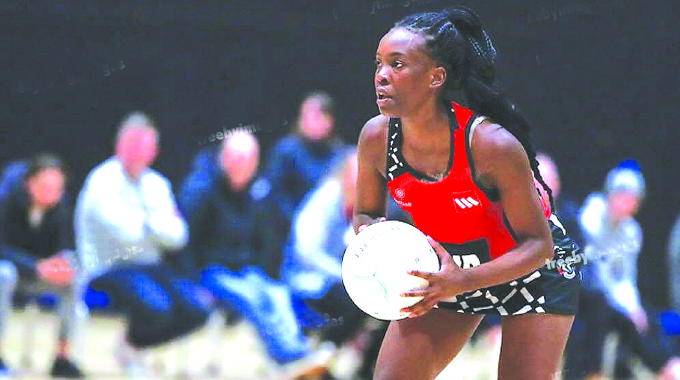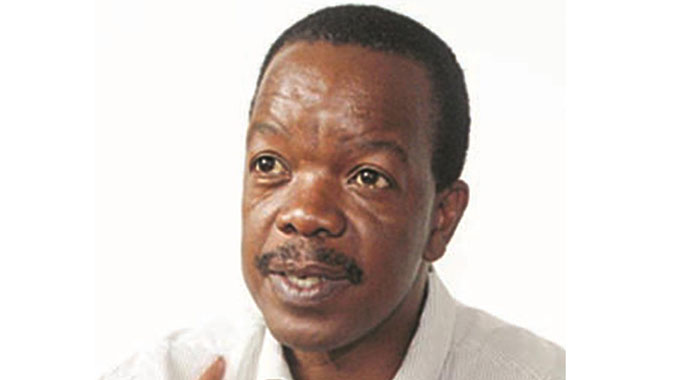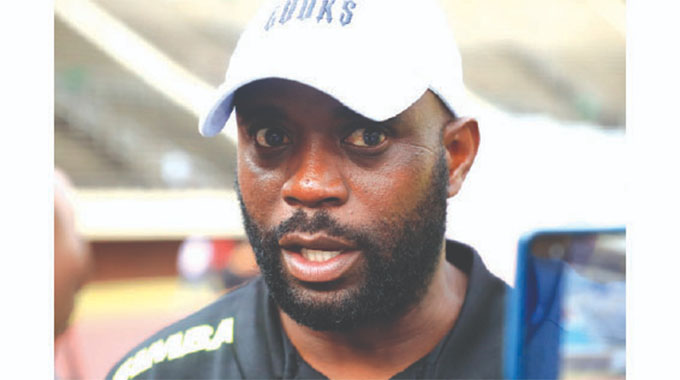For Daniel, for Joel, fate is cruel

Sharuko On Saturday
IN the shadow of greatness, amid global celebrations triggered by the arrival of world football’s next King, he was born.
Brazil had just won their first World Cup title in Sweden the previous year, and in the process, the Samba Boys had introduced Pele, the teenage genius anointed to the King of Football, to the globe.
He was only 17, when he took his place in the starting XI in that final at Stockholm’s Rasunda Stadium, on June 29, 1958, the youngest player to feature in the game’s biggest showdown.
By the end of the contest, the boy genius had scored twice, to help his country thrash the hosts 5-2, in one of the all-time World Cup final classics.
At 17 years, 249 days, Pele became the youngest player to score in a World Cup final while Nils Liedholm, at 35 years, 263 days, also became the oldest to score, at this level of the game.
The seven goals remain the highest number of goals scored, while the five goals scored by the Brazilians remain a ultimate benchmark of marksmanship, in a World Cup final.
It was the first showdown, between a European and South American nation, for the World Cup title, and the plucky Swedes remain the only hosts, in the history of this tournament, to lose a World Cup final match.
While Brazil lost to Uruguay, at home, in the 1950 World Cup decider, it was not a final, as the tournament was decided on a round robin basis.
Brazil, having lost the toss for the kit, since both teams used gold as their primary colours, chose not to wear their alternative white kit.
The team’s management feared doing so would be tempting fate, as Brazil had lost the final deciding match in the 1950 World Cup, while also wearing a white kit.
So, the Brazilian staff ended up buying 22 blue T-shirts, on the Stockholm streets, with the country’s emblem being sewn onto these shirts, which the Samba Boys players wore for the big match.
Amid all that drama, one iconic moment stood out, from that match.
And, inevitably, it came from Pele, who controlled the ball in the penalty area, floated it over a defender and then fired it past Swedish goalkeeper, Kalle Svensson.
In all this excitement, as the world celebrated the arrival of its football King, a boy was born in Harare.
They named him Daniel.
In Hebrew, it means “God is my judge,” and it’s a bastion of loyalty to the Almighty, irrespective of the persecution, or danger, which one might confront, in making such a pledge.
The Bible tells us that Daniel was thrown into the lions’ den, for refusing to worship King Darius but, with God’s protection, he emerged from it unharmed.
“My God sent his angel and closed the lions’ mouths so that they would not hurt me,’’ Daniel told King Darius.
“For I have been found innocent before Him; neither have I done you any harm, O king.’’
Darius then ordered all the men who had accused Daniel, together with their wives and children, to be cast into the lions’ den where they were all crushed by the beasts.
Today, Daniel remains a very popular name.
Last year, it was the 14th most popular name given to boys, who were born in the United States.
In 1959, Daniel Mandishona was born, in Harare, and he grew up under the care of his grandparents, at their home, in Mbare.
We called him Danny.
It’s very likely that, as a child, he supported Dynamos.
After all, during that time, especially for the people of Mbare, doing so was not by choice but by a sense of both pride, and entitlement, to this project, from their neighbourhood.
While he didn’t give out a lot about his football fantasies, the choice of his neighbourhood friends, especially Joel Salifu, a devoted DeMbare fan, appeared to give away his hidden interests.
By the time he died, in July 2012, in Johannesburg, Salifu left a mark on the domestic football scene, from forming his United FC project to becoming one of the driving forces, who were behind the trailblazing Blackpool.
THAT GAME, THAT SCORELINE, THAT NIGHT AT JOE’S PLACE
That Joe was a football man is not even a subject of debate and, even as we approach a decade since his untimely death, his name remains a big part of our national game.
The legacy of his romance remains the touch of professionalism, which he and his colleagues at Blackpool tried to introduce, in a game which was then largely a playing field of amateurism.
A minefield of both chaos and exploitation, where players would display their talents, week in and week out, for very little, and usually nothing, in return.
A top-flight league which time appeared to have forgotten, frozen in its primitive state, staggering in the darkness of its pre-medieval existence, where professionalism remained a dream, found in a faraway stream.
Joe also had a strong attachment with the Warriors, and was one of the local fans who paid for their tickets to fly to the French city of Lyon, hoping to be witnesses, on the day the Dream Team would come of age.
That was in 1993, when Reinhard Fabisch’s gallant men went toe-to-toe with the Pharaohs of Egypt, in a winner-take-all battle for a place among the last nine African teams standing, in the quest for a ticket to the ’94 World Cup finals.
Danny also went along, with his friend Joe, to support the team.
For him to live the dream and to be part of the magic, and the people, who had the privilege of a front-row seat, when the Warriors came of age.
Those days, and nights, were wild, the Dream Team were redefining the meaning of success, a fearless band of Warriors who had transformed themselves into specialists, in hunting, and capturing, the African giants.
They were the days of our lives.
Our transformation, from a team which, consumed by a fatal combination of its demons, and the sum of its fears, had self-destructed, in a stunning capitulation at home, in the ’92 AFCON qualifiers, was there for the world to see.
Now, we could stand toe-to-toe with the giants of the game on the continent.
The Pharaohs, fresh from featuring at their first World Cup in 56 years, at Italia ’90, failed to beat us in 180 minutes, of our two group matches, going down in Harare before that goalless draw in Lyon.
The Indomitable Lions, fresh from transforming themselves into world football’s sweethearts, with that magical run at Italia ’90 when Roger Milla took them into the quarter-finals, were beaten by an Agent Sawu goal, in Harare.
For Danny, for Joe, and for everyone who derived a lot of pride in being a Zimbabwean, these were the sort of results, and performances, which justified their wild romance with the Dream Team.
You didn’t need to be a devoted football fan, to fall in love with them, and one night in September 1993, Danny’s conversion, into a real supporter of our game, was completed.
Given, by then, we were all gripped by this hysteria that an appearance at the ’94 World Cup was now certain, for us, we had begun to take interest in the other qualifiers, around the globe.
We were already coming up with our choice of countries, the ones we would prefer to meet, in the United States, on top of the regulars like the Brazilians, the Germans and the Italians.
And, in that factory of our imagination, no country captured our imagination, like the Colombians, the boys from a country which was being consumed by a drug-powered internal conflict, somehow, finding a way to give their grieving nation a rainbow of hope.
In a way, they were just like us, in terms of being lightweights on the scene and, just like us, they were punching above their weight, in a very big way.
It also helped, in terms of our love affair with them, that their star was a black forward, who looked just like us, just like the fellow next door. His name is Faustino Asprilla.
He was a maverick, football’s ultimate version of a Hollywood stuntman.
To him, this was all a show, an exhibition of his outrageous gifts, an advertisement of his seductive range of skills, a dance using the power, and magic, of the ball.
But, for whatever they had done, and achieved, this was their ultimate test.
A winner-take-all match against Argentina, in Buenos Aires, just like our march into Cairo, for that grand showdown, earlier that year.
In the reverse qualifier, the Colombians had ended Argentina’s 33-match unbeaten run.
But, in their fortress in Buenos Aires, the country, which had played in three of the last four World Cup finals, winning two of them, were ready to strike back.
So, Joe invited us to his house in the Grange, one of the few houses in Harare, where there was a satellite dish, back in 1993, to watch a game in Argentina, which would be screened in the early hours of the morning.
And, as Asprilla and his teammates crushed Argentina 5-0, little did we know that we had just been witnesses to history, to what is now widely acknowledged as the greatest performance, by an away team, in a World Cup qualifier.
For Danny, this was the kind of fairytale, which began with his Dream Team’s Cinderella campaign in the ’94 World Cup qualifiers, which really cemented his love affair with football.
THE WRITER, THE TOWNSHIP STORY TELLER, THE ARCHITECT
Danny was also a writer, a brilliant one too, with a number of books to boot, in which, among other things, he wrote about the tales of the township he grew up in.
One of his books, ‘’Better Build Boys Than Repair Men,’’ talks about the ruthless small-time gangsters of Mbare, who were celebrated, and feared, in equal measure.
You read about dead men who could walk and about the magical charms which made them immune to bullets.
You also read about Johnny “Danger’’ Machipisa, Christopher “Violence’’ Phiri, Elijah “Mabhini’’ Nyembe, Eddie “Sugar’’ Mushita, Innocent “Godfather’’ Masaga, Conrad ‘Square’ Ruwizhi, Joe ‘Dillinger’ Manuwere, Ransom ‘Zorro’ Masanjala and Solomon “Razor’’ Kahungu.
“Solomon ‘Razor’ Kahungu earned his nickname after slashing off the earlobe of a boy who had made persistent but unwanted advances towards his sister Mary — a busty pre-teen whose promiscuity had earned her the nickname ‘Mary Go Round’,’’ Danny wrote.
“Johnny ‘Danger’ Machipisa was the first township criminal to commit a solo armed bank robbery.
“At the tender age of 17, he had walked into the isolated branch of a large commercial bank and held up the staff at gunpoint before walking out with thousands of dollars bulging in his pockets.’’
The more I have read his stuff, the more I have come to understand why he kept pushing me that the story of the Dream Team, just like the story of the Colombian side of the ’94 World Cup qualifiers, needed to be captured in a book.
Reinhard Fabisch, on his own, he would say, did enough, during his wild romance with the Dream Team, for a book, or even books, to be written about him.
Even Agent Sawu, he would also say, did enough, during that magical ride when he became the spearhead of the Dream Team attack, for a bookto be written about him.
Today’s generation, he would say, needed to know that, once upon a time, one of our boys, nicknamed Ajira, finished as the second highest scorer, in the ’94 World Cup qualifiers.
His six goals were only bettered by Nigerian legend, Rashidi Yekini, who scored eight, while Sawu scored more goals than Alphonse Tchami of Cameroon, Kalusha Bwalya of Zambia and Hossam Hassan of Egypt, who had four goals each.
Titi Camara, who would later play for Liverpool, finished with three goals for Guinea.
Francois Omam-Biyik, the hero of Cameroon’s opening day victory of Argentina, with the winning goal at Italia ’90, finished with two goals.
Maybe, I should have asked Danny to write the book, or books, because, in more ways than one, he appears to have been a better writer, and storyteller, than me.
It’s likely he would have declined the offer, suggesting I was more of an authority on the Warriors, compared to him.
It’s also very likely Danny would have accepted the challenge to write a book about the Colombia national football team, Los Cafeteros, the Coffer Growers.
The team whose fairytale campaign, in the ’94 World Cup qualifiers, helped complete his transformation into someone who was now genuinely in love with football.
The whole plot, with the narcotic funds, which breathed life into Colombian football, would probably have reminded him of life in the township, when the small-time gangsters were the kings of Mbare.
Colombia’s sensational rise to become such a power even Pele predicted they could win the ’94 World Cup, and the tragedy that followed, would all have provided enough material for a Danny masterpiece. He was 30, in 1989, when Colombian club football celebrated its finest hour, and also plunged to one of its lowest depths.
That year, Atletico Nacional, a club backed by Pablo Escobar, became the first Colombian side to win the Copa Libertadores.
One of their stars was a young defender called Andres Escobar.
Earlier that year, Atletico Nacional lost a match against America Cali, who also were backed by some drug lords, and Pablo was so furious he ordered the killing of the referee.
Five years later, at the ’94 World Cup, Andres became the team’s fall guy, after scoring an own goal, in a defeat to the United States, the very country the drug lords hated as they fought against extradition to America.
On July 2, 1994, Andres was killed after being shot six times in the head outside a Medellin night club.
Of course, our beloved Colombia would eventually rise from all this carnage and, as fate would have it, win the Copa America in 2001.
This year marks the 20th anniversary of that triumph.
Sadly, we will now have to also remember it as the year our brother Daniel Mandishona, one of the sharpest minds of his generation who fulfilled his dream to be an architect, collapsed, and died, in his office.
He was just 61.
To God Be The Glory!
Peace to the Ghetto Chief, Johnny “Danger’’ Machipisa, Christopher “Violence’’ Phiri, Elijah “Mabhini’’ Nyembe, Eddie “Sugar’’ Mushita, Innocent “Godfather’’ Masaga, Conrad “Square’’ Ruwizhi, Joe “Dillinger’’ Manuwere, Ransom “Zorro’’ Masanjala, Solomon “Razor’’ Kahungu and all the Mbareboys still in the struggle.
Come on Dynamos!!!!!!!!!!!!!!!!!!!!!!!!!
Stanzaaaaaaaaaaaaaaaaaaaaa!
Text Feedback — 0772545199
WhatsApp — 0772545199
Email — [email protected]; [email protected],zw
You can also interact with me on Twitter (@Chakariboy), Facebook, Instagram (sharukor) and Skype (sharuko58) and GamePlan, the authoritative football magazine show on ZTV, where I interact with the legendary Charles Mabika, is back every Wednesday night at 9.30pm










Comments